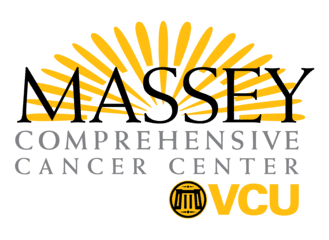Genes and cancer: Today's "answer"
By John Quillin, Ph.D., C.G.C.
Thanks to the Human Genome Project, scientists now have an immense amount of knowledge about human genes and how they influence growth, development, disease and health. The genetic influence on the development of cancer has been a focus of much study in this area. However, it is still impossible to answer with certainty any of the following questions: “Will I get cancer (or get cancer again)?” “Why did I get cancer?” and “Should I have genetic testing?” or “Would you have testing if you were me?” However, if armed with the right information, experts are getting better at venturing guesses about cancer risk based on genetics and, sometimes more importantly, can help patients make important health and lifestyle choices based on that risk.
When asked, “Will I get cancer?” by patients, genetic counselors break the question down into two separate questions. First, they will try to determine if there is a genetic component to cancer in the family, and secondly, if it is genetic, what is the risk for cancer. Most cancers are not strongly hereditary. Overall, about 5 to 10 percent of cancers are hereditary, though that rate differs by type of cancer. For instance, differences in genes account for a much greater proportion of prostate cancer than cervical cancer. Out of 100 people with cancer, five to 10 would be expected to have strong genetic susceptibility to cancer.
The biggest clues to hereditary risk come from family health history. Answering “yes” to these questions leads to the likelihood that the cancer in the family has a strong genetic component and genetic testing may be able to help:
- Is there more than one person in the family with cancer?
- Is there more than one occurrence of a particular type of cancer?
- Did the cancer occur at an early age?
- Did anyone in the family have more than one cancer?
Genetic testing is a way to look at the genetic code that is inherited. When the genetic code contains changes, these changes can lead to cancer. When cancer is hereditary, it usually means that each child has a one in two chance of inheriting the increased genetic risk from a parent who also has increased risk. Knowledge of family history, possibly combined with genetic test results can help counselors provide guidance about risk for cancer. Genetic testing does not provide absolute certainty of whether someone will or will not have cancer.
Answering the question “Why did I get cancer?” is also complicated, as there are many possible factors, in addition to genetic predisposition, that can increase risk — tobacco or alcohol use, obesity, radiation exposure, etc. Cancer is a multistep process — it often is a combination of factors that actually cause cancer to occur. So, even if one inherits some risk, the actual cancer may have resulted from an entirely different process, such as smoking or exposure to other harmful substances.
Genetic counselors are challenged when patients want a recommendation about testing, and will usually engage in thoughtful discussions with the goal of coming up with an answer that reflects the values and goals of the patient. Some important factors that are considered:
- What is the patient’s risk?
- How likely is it today that there is a test that will address the information needs?
- Does the patient want to know his or her risk or is he or she happier not knowing?
- Is the patient going to do anything different as a result of the test information?
- Can the patient afford the test?
- Could genetic test results cause someone to lose their insurance or raise the cost of insurance?
- Does my family want to know this information and how will it affect their choices and well-being?
Genetic counseling offers the opportunity to address complicated questions that may or may not have decisive answers.
About the author
John Quillin, Ph.D., C.G.C., is an assistant professor in the Department of Human and Molecular Genetics at VCU. He conducts research and genetic counseling at VCU Massey Comprehensive Cancer Center’s Familial Cancer Clinic.
